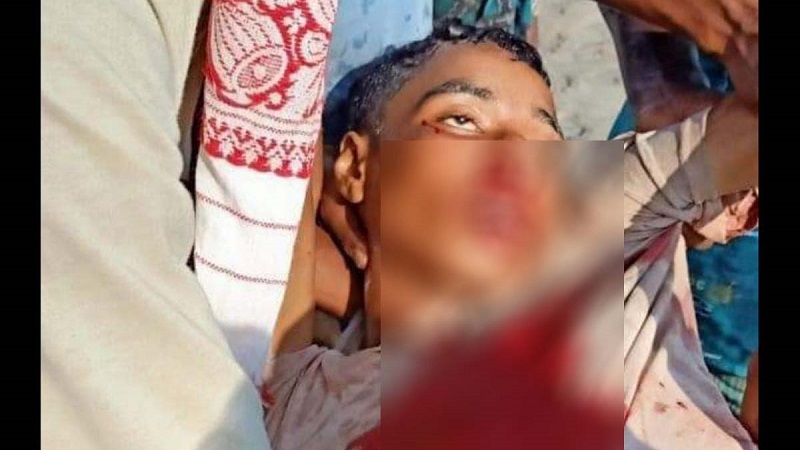
One of the most gut-wrenching images from the September 23 police firing on evicted families in Assam, was that of an unconscious young boy with a blood-soaked shirt. That young boy was 12-year-old Sheikh Farid who succumbed to a hail of bullets fired by the Assam Police. It is now learnt that he was only there, as he was on his way back from an Aadhaar centre.
“He had gone to the Dhalpur Aadhaar centre. He was on his way back when the police shot him dead,” says Amir Hussain, brother of Sheikh Farid.
The boy, a resident of Kirakara village of the Dhalpur region, was one of the two people shot dead by Assam Police personnel who opened fire on people protesting eviction from Gorukhuti village that falls in the Sipajhar circle of Darrang District of Assam.
“We didn’t even know that he had been shot until the Facebook video began circulating,” recalls Hussain, adding, “After that, the entire family has been in shock.” Sheikh Farid’s parents, Khalek Ali and Golbhanu, have not been able to utter a single word since the day their son died! “What can they say? Their hearts are broken,” says Hussain.
The evictions, demolitions of the modest huts of deeply impoverished families and the eventual violent crackdown by the police, are all being seen by rights groups and civil society as a form of ethnic cleansing. Almost all families left homeless amidst a raging Covid-19 pandemic and the punishing monsoon season in this flood-prone riverine region of Assam, hail from the Bengali-speaking Muslim minority community.
CJP, has been working on the ground in Assam since 2017, to help our fellow Indians of all faiths navigate the complex citizenship crisis, so that nobody is victimised, especially on account of socio-economic backwardness. During our work, we have discovered how Bengali-speaking minorities are the most vulnerable as many are dubbed “Bangladeshi” or “foreigner” by a xenophobic regime.
Bengali-speaking Muslims stand at the intersection of two persecuted groups and are thus targeted with impunity by a regime that gains strength by fostering division instead of unity. Which is why, the forced removal of Bengali Muslims from a place where their families have lived for 40-50 years, seems motivated. But is someone who shoots a child dead, merely motivated, or full of hate and drunk on power?
Related:
Crowd control by Police: How much force is too much force?
Assam Police Firing: Who are “encroachers” and who are “indigenous”?
Assam Police Firing: People across India demand justice for evicted families
Assam Police Firing: Support for victims grows
Assam Police Firing: Death toll rises, victim blaming rampant
Police firing in Assam: Illegal and unforgivable
BREAKING: 2 killed, 10 injured in police firing in Assam
